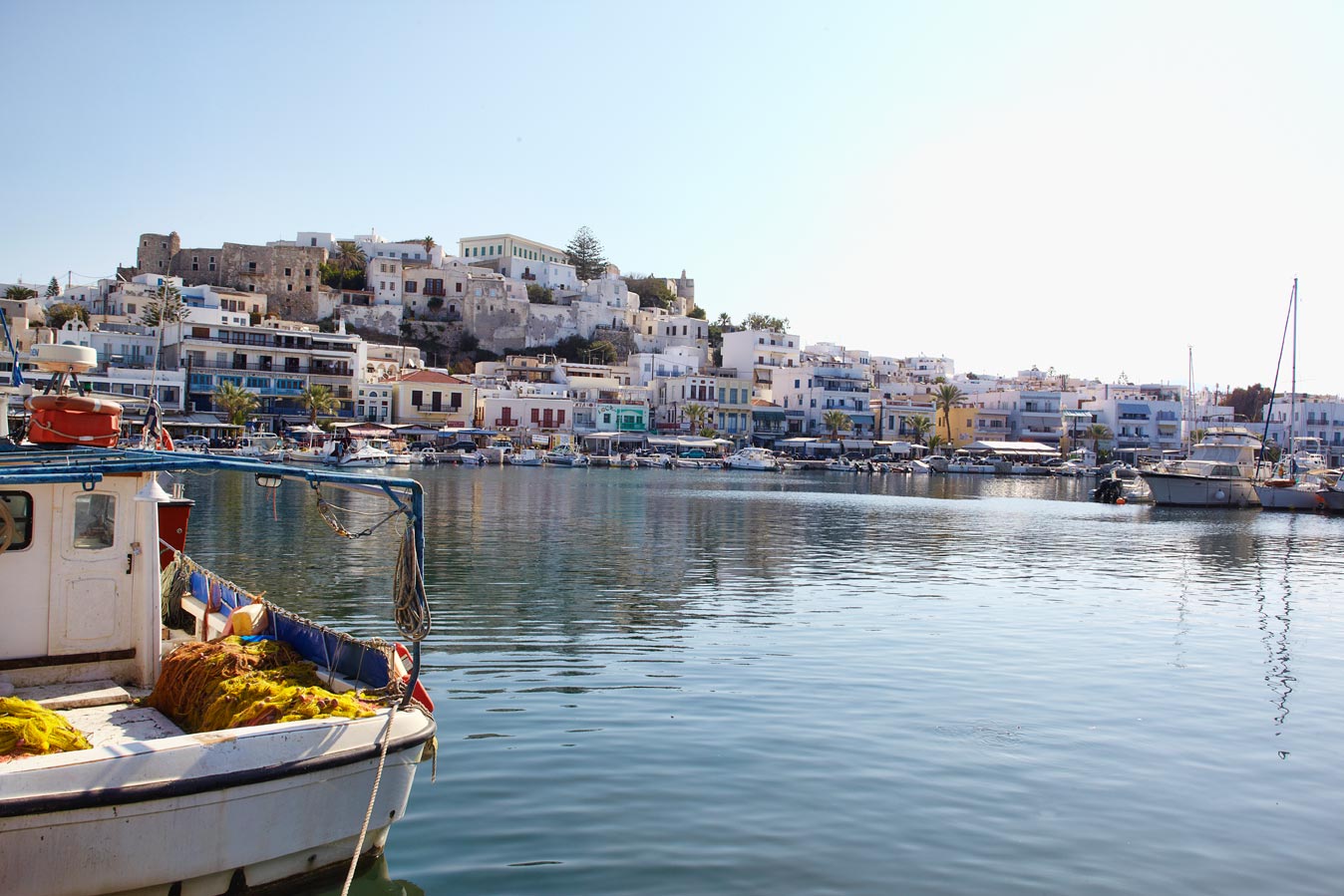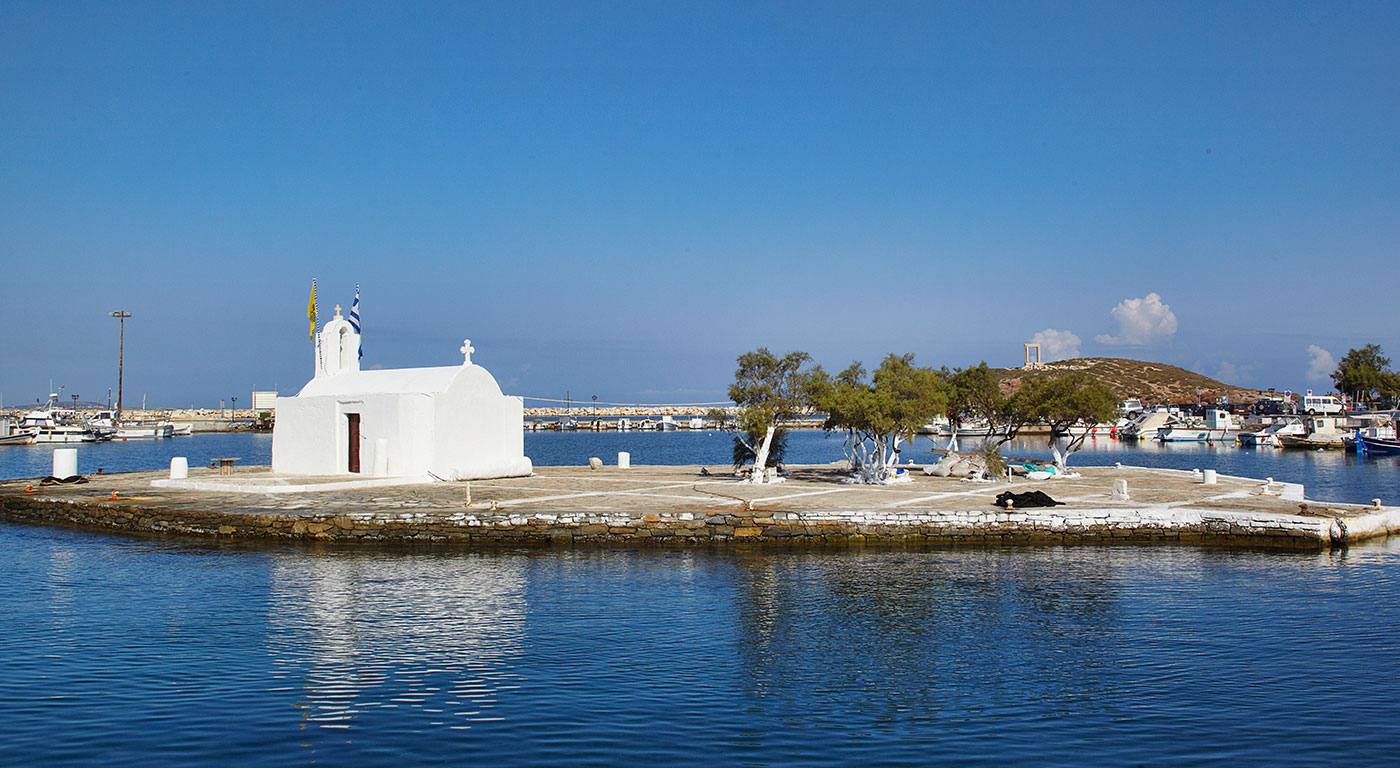NAXOS HISTORY
Naxos has played a major role not only in the history of the Cyclades but also in that of Greece. The island, famed for its marble and emery exports, its lush and blooming gardens, its valleys and its olive groves, is also characterized by its citrus fruits and fragrant wine, traditional cheeses and salt.
In its splendid isolation, guarded fiercely by the sea, the island has lost little of its authenticity, remaining virtually self-sufficient to this day. According to prominent historians of the past, such as Pindarus and Herodotus, Naxos Island has long been famed for being the most fertile of the Cyclades. In ancient times its wine also laid claims to being the nectar of the Gods.
Naxos has strong associations with Dionysus, the God of Wine, who embodied all the good forces of nature. According to myth, he was born and raised on Naxos where he married Ariadne after Thyseus abandoned her. Her marriage to the god and her death were a cause for great festivity on the island as they symbolize the eternal cycle of death and rebirth within nature.
Naxos has been inhabited since the fourth millennium BC, studies proving that not once in its history has the island been abandoned; on the contrary, it appears that since antiquity, the island has always had a population. As would be expected, throughout the years foreigners have come and settled on the island, peaceably or by force, gradually becoming one with the permanent population.
Certain place names appear to confirm the existence of settlements constructed to worship of gods. The highest point on the island, known as Mount Zeus, bears the name of the father of the gods. As such, it is alleged that he was worshipped her in ancient times. An inscription on an unwrought piece of marble would appear to support this claim. This stone can be found on the route taken by climbers seeking to reach the top of the mountain. It supposedly marks the existence of an ancient temple constructed for the purpose of worship.
On the north coast of the island, the village of Apollona, takes its name from the God Apollon, also fiercely associated with the island.
The very first inhabitants of the island are believed to be the Thraex who, according to tradition, ruled the island for the first two hundred years. They were succeeded by a people known as the Kares who came from Asia Minor. The name of the island is believed to have been given by its leader, Naxos.
The Byzantine period in Naxos did not come to an end neither with the fall of Constantinople, nor with the conquest of the Cyclades by the Venetian, Marco Sanudo, and the Latin reign which was founded and became based on Naxos. In the context of this newly founded colony, the islanders retained the customs of the Byzantine Empire, (primarily the Byzantine religious traditions), while at the same time, gradually assimilating new traditions.
1536-66 saw the advent of the Turkish Occupation. The Turks, however, did not actually settle on the island, their main occupation being the collection of taxes. Consequently, the Venetian rule lasted until the Greek Revolution in 1821.
As such, the traditions of Naxos Island represent a glorious fusion of cultures and civilizations which blend imperceptibly with one another.
More articles about Naxos you can read in our blog.







